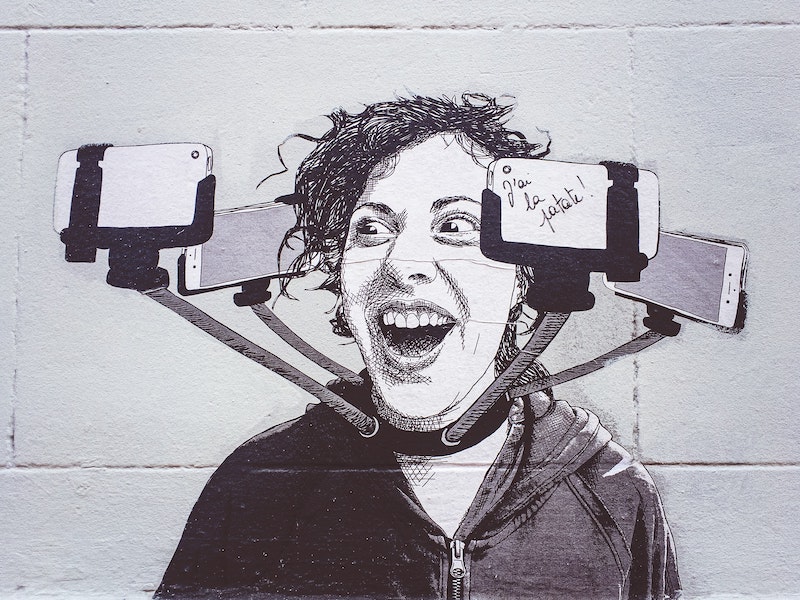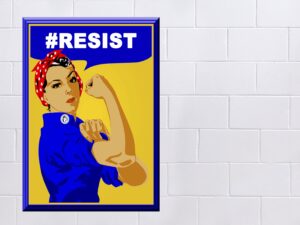The Novelist John Barth once wrote, “everyone is necessarily the hero of his own life story.” To maintain an image of ourselves as stars of our own show, we must create stories that place us front and centre in our minds. At the heart of this hero-worship lies individualism.
Individualism and the idea of self-importance feed the ego and result in some people believing they are the centre of the universe. The greater the ego, the more detached we become from the society we depend on. It is the pathological effects of self-importance and egoism that erode the fabric of society.
We all believe in our self-importance because, from our perspective, we are important. You are unique, of course, and there is no other person like you. But you are also a product of the society that shaped you — created your views, your way of seeing the world, and your way of behaving towards others in it. In every way, the social construct has shaped you.
Society can’t function without each person conforming to a dominant ideology. The fact everyone does conform creates a functioning society where most people are productive citizens who contribute to society.
Yet a peculiarity of our time is lots of people have become so absorbed by their ego they believe they are more important than society itself.
A reason why is that we’re taught life is a competition, and each person must be self-interested to be successful. For many, this translates to having an attitude where the only person who matters is me. To be successful, you must think about number one. Doing so creates a ruthlessness based on pure self-interest. Everyone else is a tool to help you become successful or a competitor who threatens your success.
We all depend on each other
For modern society to work, everyone must contribute in different ways. Jobs are divided based on specialisms. Each person serves a role that few others can do.
While the jobs we do benefit us, in the pay we receive for doing them, they also benefit everyone else. It’s hard to perceive day to day, but everyone works for the benefit of everyone else.
A consequence of having a society made up of specialists is that some roles have higher status and higher value in the form of pay. Those in high-status positions consider themselves more important than others who perform ‘less’ important jobs.
To use an example, let’s compare two specialisms in society. Bankers have high social status because they earn lots of money. But their value to society is often questionable. In fact, sometimes, they earn lots of money and receive million-dollar bonuses by creating value for the bank, to the detriment of society.
Compare the banker to a social worker. Again, a highly specialised, demanding role. The social worker isn’t a sought after occupation because the social worker gets poorly paid for doing it.
The fact of the matter is that you don’t become a social worker for social status or the lifestyle it affords. You do it because you care about others in society. The social worker creates high social value, but our culture glamorises the banker over the social worker because of our cultural celebration of the individual.
Cogs in a machine
The fact people have specialisms that few others can do may allow them to make more money, but that doesn’t make them more important than others. Because if those other people do not do what they do, then the specialisms become irrelevant, as a society can not function.
We are mutually dependent on one another; no one is self-sufficient, so no one is truly an individual. But we celebrate self-interest and greed, as if competing for a bigger share of the pie is natural.
While each person is necessarily the hero of their own story, the reality is you’re a cog in a machine, easily disposable and replaceable. No piece of the machine is intrinsic to the machine working as it does. If one cog goes, another will replace it in that role.
Hero worship, then, is a product of your ego, nothing else. Because if you step out of yourself (which is far easier said than done), you will see yourself for what you are, no more or less valuable than anyone else.
It’s a perverse state of affairs that our reliance on one another is almost like some dirty secret. As if it’s an inconvenient truth in the eyes of those who want to glamorise the individual.
Social media weaponises the ego
There is no greater expression of the insidious effect individualism has on society than social media.
Social media is the ultimate expression of hero worship. It’s a perfect tool to give each person a stage to serve their self-importance. The more followers they have, the more important they feel.
Social media works to affirm our hero worship, leaving us even more convinced of our self-importance. It is a weapon used to enhance the ego. The downside is it has a pathological impact on society in further dividing people and making them feel they are more ‘worthy’ or important than others.
Social media is designed to allow you to be the hero of your own story. By controlling how you’re seen and perceived by others, we can provide a reality we want to present to the world.
Social media does allow you to be the centre of your universe.
It’s this perversion that lies at the heart of so many issues we face. Your value to society does not matter. What does matter is how much money you have or the type of lifestyle you lead. These elements feed into our social status, which is what society prizes above all else.
So is your wealth the result of predatory behaviour where you defrauded thousands of people out of their hard-earned income? No problem. Is your lifestyle the product of being beautiful and having millions of followers on Instagram while providing no positive value to society? Great.
It’s not important how you got your wealth. What is, is the fact you have it, and you’re able to afford a lifestyle that makes you feel important and makes others treat you like you are important.
A world turned upside down
While everyone drowns in self-importance, the issue is that there are victims of our celebration of the individual. It’s why millions of people still live in poverty. They are detached from our story, and this detachment means we don’t see or feel their problems, so they’re not our problem. Our way of seeing the world through a lens of individual self-importance means we have no compassion for others.
Because each person believes themselves to be so important, they fail to realise we are the sum of our parts. The victims of our social system go hungry, maybe they’re homeless, yet we blame them for being in that situation. All the while, it’s the beliefs feeding our reality that results in so many suffering.
If we can unlock the global consciousness, the reality that we are all connected and depend on one another for the world to function, it would unlock a truth hidden in plain sight. Everyone depends on everyone else for society to flourish.
Poverty, suffering, inequality, environmental destruction, greed, envy, jealously — all these negative aspects of society are a product of our beliefs.
The idea some people are ‘better’ than others or more deserving of the fruits of others’ labour is pathological. We must change the narrative and focus on how deeply connected and reliant on one another we are.
By doing so, we will see millions suffering in the face of others living in luxury for what it is, a pathological monster fed through ego and self-importance.



